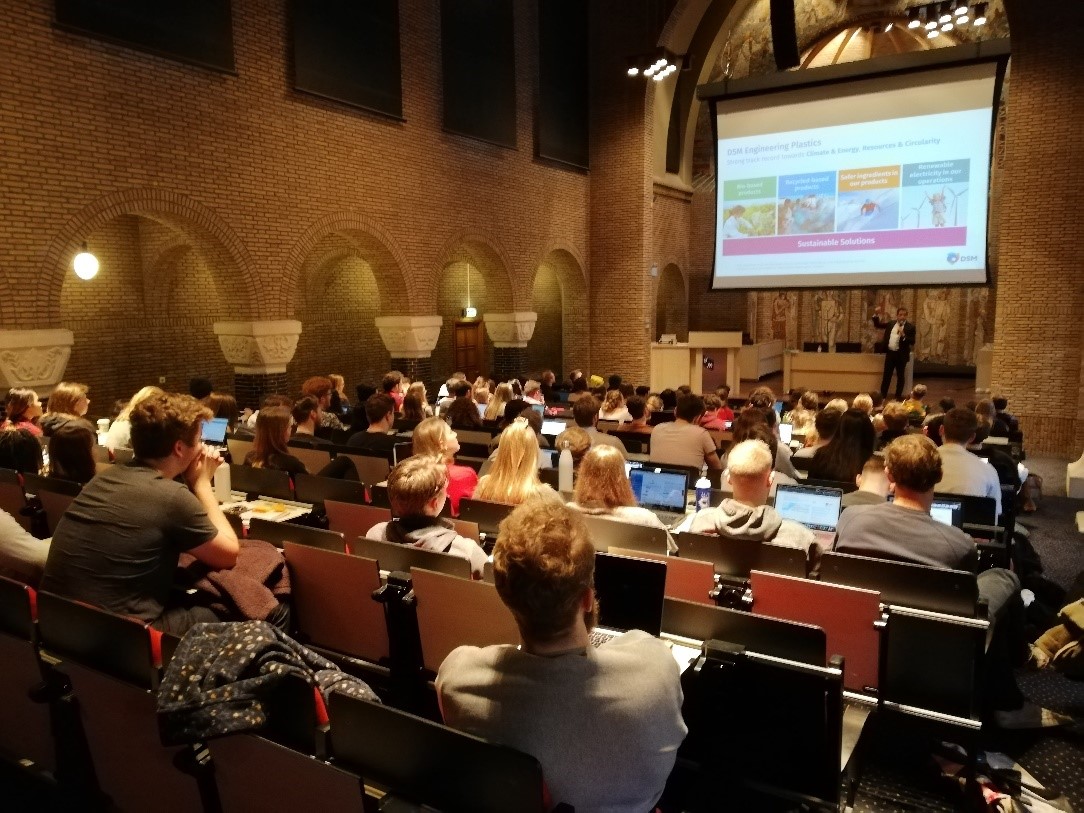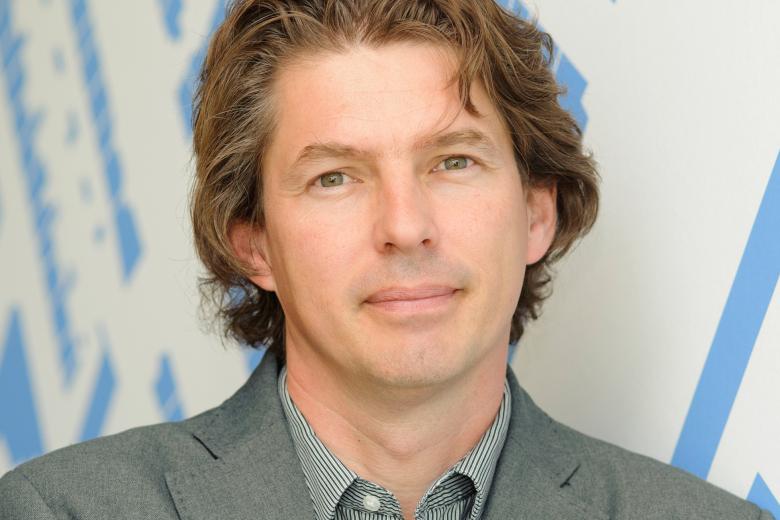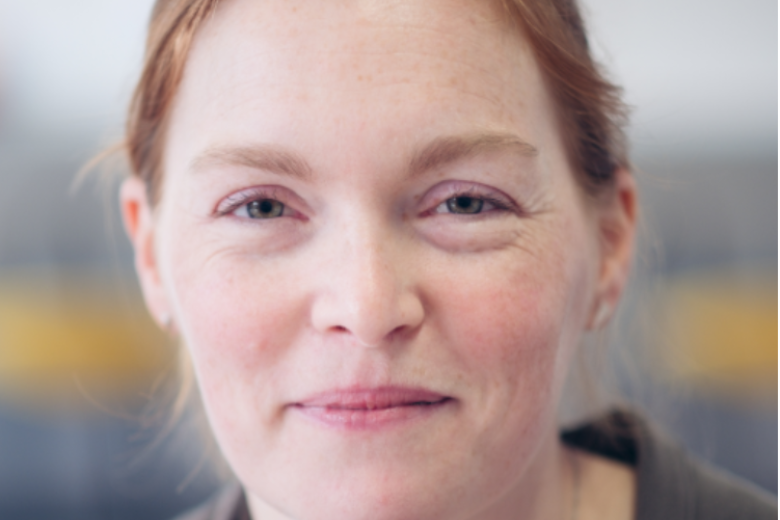SBE students conduct market research for DSM’s sustainable engineering plastics
In this year’s edition of the course Customer-centric Supply Chain Management, our 2nd year IBE bachelor students conducted market research for DSM’s sustainable engineering plastics. Within seven weeks, students learned about the principles of market research and got to design as well as implement full-blown market research to examine a SCM-related problem from a consumer point of view. Due to the Covid19 pandemic, the best 13 teams delivered their pitch to DSM management online and two teams were awarded the first place.

In March 2020, SBE had the pleasure of welcoming Jan-Pedro Vis, Business Director UV-Resins and his colleagues Stephanie Wohlgemuth, Global Business Manager EcoPaXX® and Neelima Kadirisani, Sustainability Engineer from DSM as jury members for determining the best market research project (MRP) as part of the Customer-centric Supply Chain Management course.
This 2nd year IBE BSc course is aimed at discussing in an integrative manner how a supply chain makes available the products and services that marketers have promised to consumers. Market research is an essential first step for understanding customers' demands and needs. The MRP, therefore, is an essential part of the course – within seven weeks students learn about the principles of market research and get to design as well as implement full-blown market research to examine a SCM-related problem from a consumer point of view. The generated insights are then used to develop concrete and managerially relevant recommendations for optimizing and streamlining SCM processes and operations.
After successful previous editions with renowned companies like DHL and Zalando as clients, the course coordinator Dr. Nadine Kiratli invited DSM to join as a client for this year’s challenge. Jan-Pedro Vis introduced the management challenge in the opening lecture of the course: how to create market pull for DSM’s sustainable engineering plastics. Throughout the course, 39 student teams across 13 tutorial groups were busy with translating the management challenge into a researchable problem statement, identifying relevant research questions, developing an appropriate research design, collecting data by means of an online survey from a total of 6000 respondents, analysing gathered data in SPSS, and interpreting the research results to formulate recommendations for DSM. Due to Corona-related safety measures, final pitches were conducted online. All teams did a great job of adapting to the new circumstances of distance learning.
DSM was impressed with the level and nature of insights as well as the professionalism with which the teams delivered their pitches and answered DSM’s questions. Jan-Pedro’s team will be using the gained insights to keep driving DSM’s vision of sustainable engineering plastics to help reach climate goals such as reducing CO2 emissions and cleaning our oceans from plastic waste.
Congratulations to all 13 finalist teams and to Jort Douma, Fariha Kabir, Nell van den Ende, Kylie Peeters, Capucine Boisdron and Max Balthasar, Amaury Cattoir, Paul Jaeger, Clara Reibe, Enrico Cirieco whose teams both secured the first place!
Special thanks goes to my great tutor team consisting of Lina Altenburg, Roberta Di Palma, Ankit Govil, Max Körber and Angie Zimmann!
Also read
-
Giants and the shoulders they stand on - Luc Soete & Bart Verspagen
UNU-MERIT celebrates the 2025 Nobel Prize in Economics awarded to Joel Mokyr, Philippe Aghion, and Peter Howitt for their groundbreaking work on technological change and economic growth. In this reflection, Luc Soete and Bart Verspagen explore the laureates’ connections to UNU-MERIT’s four decades...

-
Innovation and the dynamics of growth: a Nobel Prize for Joel Mokyr, Phillipe Aghion and Peter Howitt - Mark Sanders
Mark Sanders reflects on his personal encounters with Joel Mokyr, Philippe Aghion, and Peter Howitt, explaining why their research on innovation-driven economic growth deserves the 2025 Nobel Prize in Economics 2025 Nobel Prize in Economics and how their work advances the Schumpeterian tradition.

-
Innovation, growth, and the missing pieces: a broader perspective on the 2025 Nobel Prize in Economics - Tania Treibich
Tania Treibich examines the 2025 Nobel Prize in Economics laureates’ contributions to understanding the dynamics of innovation, showing how their research demonstrates that technological change, entrepreneurial investment, and competition are central to sustained economic growth.
